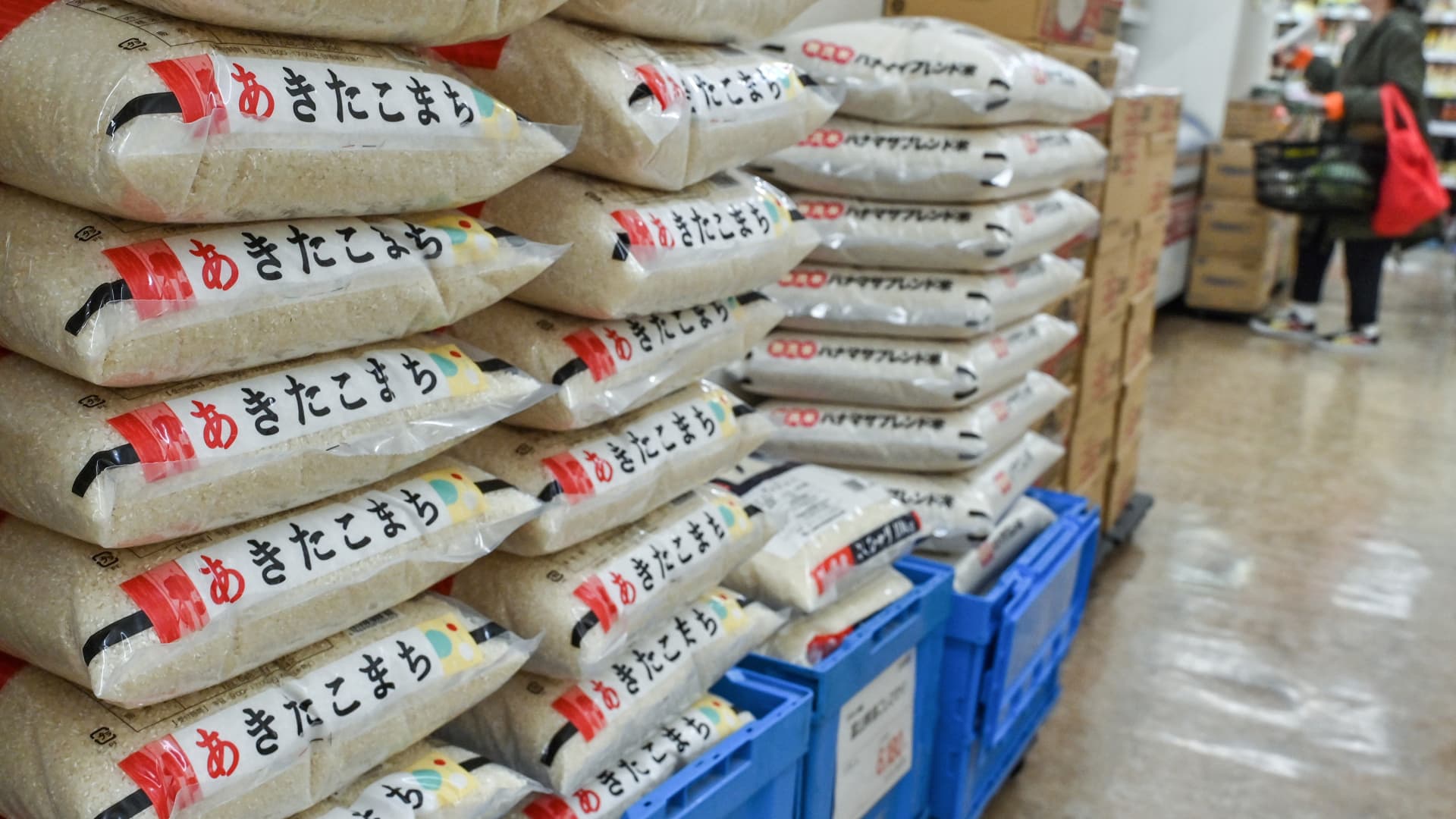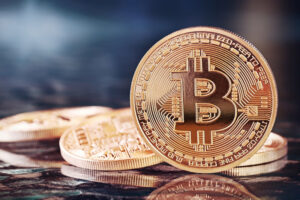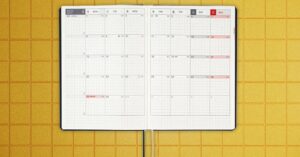Bags of rice sit stacked high in a supermarket in central Tokyo on November 22, 2024.
Richard A. Brooks | Afp | Getty Images
An inflation gauge in Japan that is closely watched by the Bank of Japan (BOJ) came in at a seven-month high in November, which could prompt the central bank to raise rates early next year.
The so-called “core-core” inflation rate, which strips out prices of both fresh food and energy and is tracked by the BOJ, rose to 2.4% from 2.3%, its highest level since April.
The core inflation rate — which strips out prices of fresh food — came in at 2.7%, up from the 2.3% seen in October and beating the 2.6% forecast by economists polled by Reuters.
Headline inflation rose to 2.9% from 2.3%, reaching its highest level since August.
The readings come a day after the Bank of Japan held interest rates steady at 0.25%, surprising economists who expected a 25 basis points hike.
The BOJ said in its statement on Thursday that the decision to hold was a split 8-1 decision, with board member Naoki Tamura advocating for a 25-basis-point hike.
Tamura was of the view that inflation risks had become more skewed to the upside, and proposed that the bank hike interest rates during the meeting.
BOJ Governor Kazuo Ueda reportedly said in a press conference Thursday that as underlying inflation was only increasing at “at a moderate pace,” the BOJ could go slow in raising rates,” he said.
Ueda did add, however, that the central bank was mindful that if it waited too long to raise rates, it would have to quicken rate hikes in future meetings,

Speaking to CNBC’s “Squawk Box Asia,” Masahiko Loo, senior fixed income strategist at State Street Global Advisors, said that the inflation print is “pretty much in line with what we think.”
He added that the BOJ is “super sanguine” on the country’s inflation and growth figures, but Ueda was likely focusing on foreign uncertainties, namely, the impact of the incoming Donald Trump administration.
The yen weakened against the U.S. dollar following the BOJ’s decision to hold rates. It hit 157.92 on Friday, marking its weakest level since July. However, the currency later strengthened again.
Loo explained that with the yen now “drifting” toward the 160 level against the greenback, Japan’s finance ministry might try to issue warnings to the market, or failing that, it might force a rate hike in January in a bid to support the yen.








